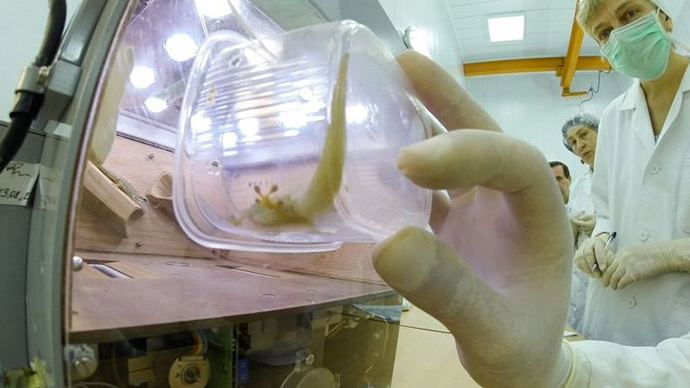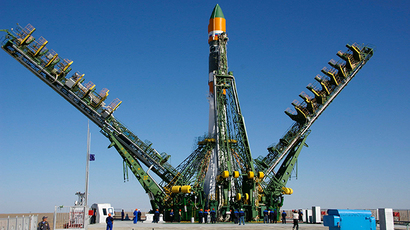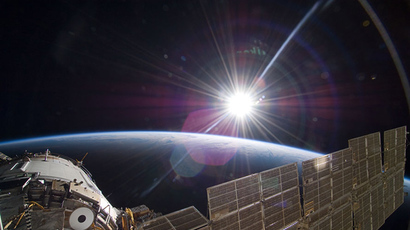Zero G sex space mission: All geckos on board Russian satellite found dead… but happy?

All the geckos onboard Russia’s Foton-M4 satellite as part of an experiment on how zero gravity affects reproduction have died, the Russian Academy of Sciences reported as the spacecraft returned to Earth.
“Unfortunately, all the five geckos have died. We can’t say yet at which stage of Foton’s space flight it happened,” a source at the Academy of Sciences told RIA Novosti on Monday. “At the same time, the fruit flies were in a perfect condition: they produced offspring.”
The satellite – containing the bio-capsule – landed Monday in Russia’s Orenburg region after being thrust into space on July 19.
The robotic spacecraft carried one male and four female geckos. The satellite was sent into space to test how space conditions impact the geckos’ fertility, as well as the structure and health of their eggs. A camera was set up to film the lizards’ mating rituals.
Other organisms on board included fruit flies, mushrooms, and microbes, which were to be used for experiments aimed at generating electricity.
The reptiles died at least a week ago as their bodies have already mummified, the Academy’s Medical-Biology Institute told Itar-Tass news agency.
The mission did not go smoothly from the beginning: it made headlines shortly after the launch when ground control lost contact with the satellite and could only reestablish it three days later.














